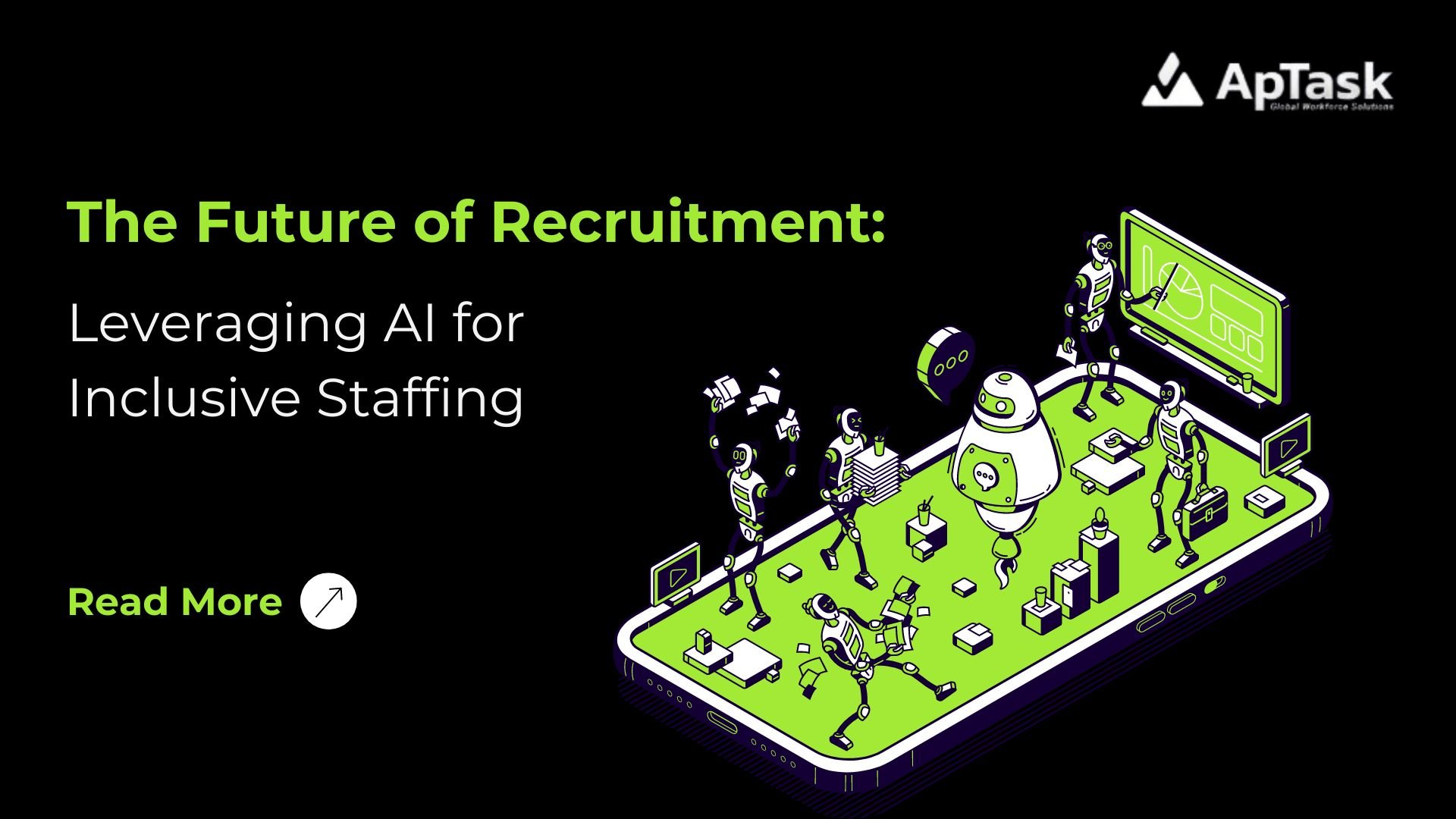The Future of Recruitment: Leveraging AI for Inclusive Staffing

In our rapidly evolving business landscape, organizations increasingly understand the pivotal role that diversity and inclusion play in their success. A crucial component of promoting diversity and inclusion is through staffing and recruitment practices. Employing AI in these processes opens up a world of opportunities to drive inclusivity from the ground up.
Bias Reduction in Hiring Decisions
For decades, unconscious biases have tainted the recruitment landscape, leading to homogeneity in the workplace. AI-driven recruiting tools, however, offer a refreshing avenue to curb these biases. By stripping away identifying features that could inadvertently trigger biases, AI systems process applications based on defined job-relevant qualifications.
Unraveling the Impact of Unconscious Biases
Traditional resume screening is laden with potential for unconscious bias. AI tools can sift through resumes with a neutral perspective, emphasizing skill sets and qualifications alone. This not only improves the accuracy of match-making but also fosters a professional environment that values potential over prejudice.
Foster Inclusion Through Equitable Review Processes
AI’s ability to render equitable screening is invaluable for candidates from underrepresented communities. The lack of personal scrutiny allows for a level playing field, where candidates are evaluated solely on their merits. Recruitment processes heavily fortified with AI intervention can recalibrate the path to a more diverse workforce, ensuring equal opportunity for all.
Widening the Talent Pipeline
One of the most significant advantages of employing AI in recruitment is the expansion of the talent pool.
Dismantling the Barriers to Entry
Structural barriers often prevent employers from tapping into talent from certain geographies, socio-economic backgrounds, or educational institutions. AI, with its capacity to trawl vast ecosystems, can unearth hidden gems, bringing such diverse talents into the limelight. This broadened horizon does not only reflect inclusivity but also has implications on innovation and creativity.
Enhancing Diversity by Design
AI systems designed for diversity magnify the significance of varied perspectives. By ensuring that no segment of the population is inadvertently excluded, the recruitment process encourages a collage of genders, ethnicities, and creeds. The benefits translate not just in terms of corporate social optics but also in the richness of innovation and adaptability within the organization.
Objective Decision-Making
The beauty of AI lies in its objectivity. By streamlining the evaluation process, AI systems enable an objective assessment based on quantifiable data.
Averting Personal Biases
Subjective evaluation criteria can often be influenced by the proximity of the evaluator to the candidate. AI systems, however, remain impervious to such factors, relying solely on data-driven analyses. This objectivity reinforces credibility in the recruitment process, beyond reproach and without favoritism.
The Science of Suitability
AI’s approach to matching candidate profiles with job requirements is akin to a scientific study. It dissects roles into constituent elements and methodically aligns candidate competencies through robust algorithms. This is more than a match; it’s a mathematical certainty that the best-suited candidates are selected, irrefutably.
Monitoring and Accountability
Recruitment is not a one-off event but a strategic process that threads through the organization’s fabric. AI’s analytical capabilities, coupled with robust reporting tools, offer an unprecedented level of transparency and accountability.
Real-Time Diversity Metrics
AI systems can churn out real-time reports on diversity metrics, tracking not just the end results of recruitment drives but the minutiae of the hiring process. This level of scrutiny is crucial for identifying bottlenecks in inclusivity and rectifying them promptly.
Holding the System — and People — Accountable
Organizations that are serious about diversity and inclusivity set standards and expect them to be met. AI tools act as sentinel watchdogs, ensuring that the human element in the recruitment process adheres to the principles of fairness and equal opportunity — and if not, alerting the relevant channels for corrective action.
Continuously Evolving in Line with Inclusivity
AI is not just about doing things differently; it’s about doing things better. One of its most potent features is the ability to learn from past actions and constantly refine itself.
An Ever-Learning System
Each hiring cycle is a feedback loop for the AI, a cycle where it learns from its judgments. Over time, this iterative process fine-tunes its algorithms to factor in and prioritize diversity in a job-specific context.
A Reflection of Organizational Values
Integrating AI into the recruitment paradigm is a statement in itself — an organizational commitment to inclusivity. With every iteration, the system reinforces these values, paving the way for a culture where diversity is not just celebrated or mandated but is intrinsically woven into the organizational DNA.
The Balance of Technology and Humanity
While AI is a powerful enabler, it is not a replacement for the human touch. Rather, it is a collaborator in the quest for fair, inclusive recruitment. The final decisions, after all, are made by humans, and it is their attitudes and approach that AI seeks to mirror and enhance.
For recruitment and staffing companies, the adoption of AI is more than a competitive edge; it is a solemn step towards a future where diversity and inclusion are not just buzzwords but cornerstones of corporate culture. It is a voyage where machines and their makers sail together, navigating towards a horizon that promises a diverse, inclusive, and dynamic workforce.